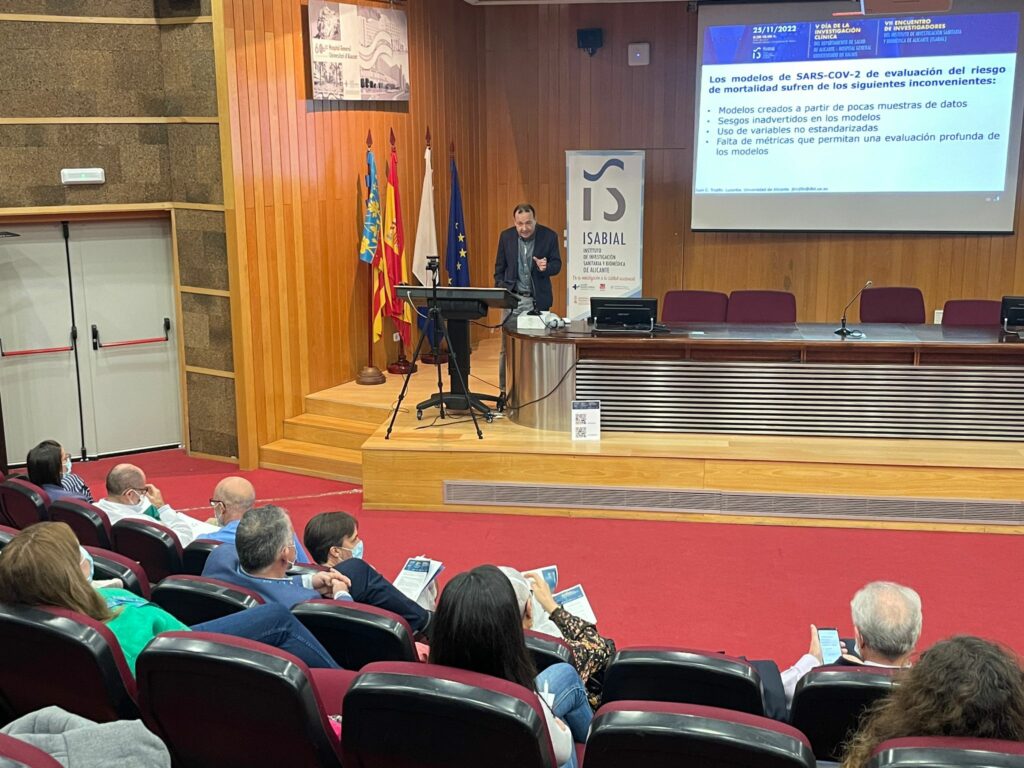Juan Carlos Trujillo presents a Machine Learning-based model capable of predicting deaths and patients at risk due to SARS-COV-2 at the 7th Meeting of ISABIAL Researchers

Our director, Juan Carlos Trujillo, participated this Friday, 25th November, in the “5th Clinical Research Day of the Alicante Health Department – General Hospital and 7th Meeting of Researchers of the Alicante Institute of Health and Biomedical Research”, organised by #ISABIAL.
This day has had different blocks of presentations, among which we highlight the group “Research in Rheumatic and Autoimmune Diseases”, where Trujillo has intervened with the presentation of the publication “Machine learning model from a Spanish cohort for prediction of SARS-COV-2 mortality risk and critical patients”. The director of Lucentia is the author of this research together with three other researchers from the group, Alejandro Reina, Alejandro Maté and José M. Barrera. In addition, the study also included the director of quality and planning of the Department of Health of the Hospital La Fe, Bernardo Valdivieso, and the researcher of the Institute of Health Research of the Hospital La Fe, María Eugenia Gas.
The five researchers’ investigation into which patients infected with #SARS-COV-2 needed the most intensive care and who would not be able to overcome the disease led to the development of a #model, based on #machinelearning techniques. It is able to predict the probability of death of #SARS-COV-2 infected people based on gender, age and comorbidities. This #model is also able to predict which comorbidities each patient is likely to develop, allowing a what-if analysis.
Similarly, Trujillo wanted to highlight the conclusions reached with this research, which can be summarised as follows:
- This is one of the studies with the most data on the first variant.
- The effects can change at any time due to the appearance of vaccines and/or new variants of the virus.
- The #BigData and #artificialintelligence together will allow us to offer solutions that help doctors to make decisions based on quantitative data and, above all, will help us to predict diseases.
Finally, we emphasise that Trujillo’s participation in this meeting has been possible thanks to his membership, along with other members of Lucentia, of the Instituto de Investigación Sanitaria y Biomédica de Alicante (ISABIAL).
This research is partially funded by the projects Big data and Artificial Intelligence to improve the diagnosis of those affected by COVID-19 of the Generalitat Valenciana, #Aether-UA of the Ministry of Science and Innovation and #Balladeer (PROMETEO/2021/088) within the Prometeo programme of the Consellería de Innovación, Universidades, Ciencia y Sociedad Digital of the Generalitat Valenciana.
